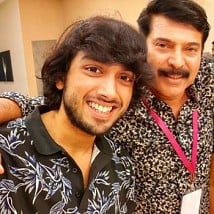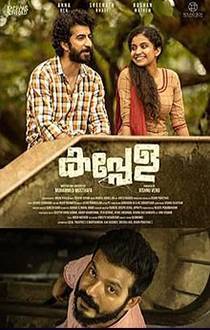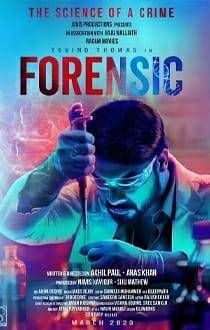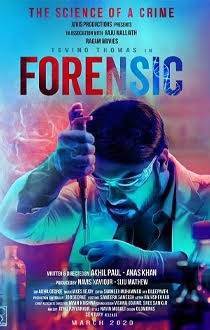UNDA MOVIE REVIEW

Right from the first frame of the Khalidh Rahman-directed Unda (Bullet), we get a sense that the makers have an unwavering attention to detail. The film opens in a bustling police station, where police officers get ready for a drill, followed by a briefing from a superior. We see lathis, guns, shields, and boots being stocked in the arsenal. We see hierarchy amongst the police, and the whole opening sequence shown without artifice and hurry. The initial scene is a well-directed montage that beautifully sets the tone for the entire film.
Unda deals with a contingent of policemen from Kerala as they are sent to an insurgency-hit Bastar to patrol the elections happening at that place. What happens when they're overwhelmed by the life-threatening situations and a shortage of amenities and ammunition forms the rest of the story.
The hero introduction scene of the film, where a pickpocket realizes his folly upon noticing the look of Mani (played by Mammootty) and returns a stolen purse, is one of the most subtly fine instances of the film. We get to see so many heroic moments without being trumpeted and over-emphasized. The film focuses much more on portraying an uninitiated group of policemen getting stationed in a place that they seldom have any knowledge about.
The first half makes us familiarize with the supporting characters, as we get to know their individual struggles. One of the cops faces a crumbling marriage while another harbors acting dreams. The film captures some of the most heartbreaking moments, like how a mildly reckless usage of a basic commodity like water, on one hand, can lead to a serious scarcity in a hamlet, without overstating the underlying message of it. Some sequences subtly reflect the North-South divide through moments of miscommunication and ignorance amongst them.
Despite handling a heavy subject matter, Unda is interspersed with lighter moments that involve the relationship between Mani and his subordinates, as they come to terms with the harshness of guarding a red-alert zone. Unda gives a peek into the outsider's perspective of a sensitive issue like Maoist insurgency.
The interval block is brilliantly conceived, where a tense moment is preceded by a warm, feel-good conversation. The second half, however, delves more into the political undertones. The film tries to tackle caste conflicts in an extremely well-staged scene where a petty fight is rudely interrupted by a violent blast. The heavy-duty themes are handled with aplomb, but some of the subplots introduced in the second half do not cohere with the well-made construct of the first half and hence feels a tad bit forced.
Mammootty's towering presence add more weight to the film. He shines in many conversational scenes where he uplifts the spirits of his cadres. The actor's understated, uptight yet endearing performance adds more credibility to the character of Mani, a caring, superior who is worried about his subordinates as they are left in the dark.
The cinematography captures the beautiful expanse of locales, ranging from the earthy exteriors to the confined room in which the cops live. The ensemble performances come across with less polish and is underplayed well. Co-writer and director Khalidh Rahman (the screenplay is written by Harshad) beautifully strikes balance between the art and the commercial.
UNDA VIDEO REVIEW
BEHINDWOODS REVIEW BOARD RATING
REVIEW RATING EXPLANATION
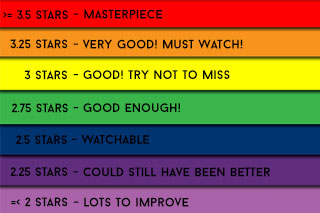
RELATED CAST PHOTOS
UNDA RELATED NEWS
- After Dubbing For Mammootty’s Mamangam, Unni Mukundan Gets...
- Exclusive: Santosh Sivan Reveals How Mahabharatham Metaphors...
- Ajith, Mammootty, Aishwarya Rai,will The Same Cast Reunite?:...
- Popular South-Indian Director's First Heart-melting Statemen...
- Video: ரஜினிகாந்த், அமிதா...
- Rajinikanth, Amitabh Bachchan And Top Superstars Team Up For...
- Break The Chain - With Mammootty, Mohanlal, Nivin Pauly, And...
- Asuran Heroine Gets A Special Gift, Calls It “purest Love...
- A Superstar As Chief Minister Kadakkal Chandran: Watch One T...
- 'മമ്മൂട്ടി പറഞ്ഞു, നിന...
- 'കേരളത്തിനൊരു മുഖ്യമന...
- 'മലയാള സിനിമയുടെ അപ്രഖ...
- പുത്തന് റേഞ്ച് റോവര്...
- 'ഡീഗ്രേഡിംഗിന്റെ പല അവ...
- മോഹന്ലാലിനും മമ്മൂട...
UNDA RELATED LINKS
- Unda | Post-Premam era - List of Malayalam films celebrated in Tamil Nadu! - Slideshow
- Unda | Behindwoods Report: Most appreciated films in first half of 2019 - Slideshow
- Mamangam | Bigil Rules Kerala TV Audiences, Check Its TRP Position This Vishu - Slideshow
- Mammootty - Peranbu | 15 Best Performances (Male) In 2019 - Tamil Cinema - Slideshow
- Ganagandharvan - Videos
- Sarath Kumar And Mammootty: Pazhassi Raja | From Thalapathi To Marconi: When Mollywood And Kollywood Stars Unite - Slideshow
- Ajith Kumar And Mammootty: Kandukonden Kandukonden | From Thalapathi To Marconi: When Mollywood And Kollywood Stars Unite - Slideshow
- Mammootty And Vikram: Indraprastham | From Thalapathi To Marconi: When Mollywood And Kollywood Stars Unite - Slideshow
- Mammootty And Arjun: Vande Mataram | From Thalapathi To Marconi: When Mollywood And Kollywood Stars Unite - Slideshow
- Mammootty And Murali: Anandham | From Thalapathi To Marconi: When Mollywood And Kollywood Stars Unite - Slideshow
- Jai And Mammootty: Madhuraraja | From Thalapathi To Marconi: When Mollywood And Kollywood Stars Unite - Slideshow
- Rajinikanth And Mammootty- Thalapathi | From Thalapathi To Marconi: When Mollywood And Kollywood Stars Unite - Slideshow
- தளபதி (1991) | இதயக்கோவில் தொடங்கி சிசிவி வரை மணிரத்னத்தின் ஷூட்டிங் ஸ்பாட் இப்படித்தான் இருக்கும் - Slideshow
- Madhura Raja - Videos
- Peranbu | 150 All-Time Best Cult Tamil Films by Behindwoods | Part 03 - Slideshow























